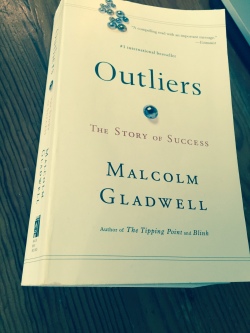When the word “artificial intelligence” appears, it’s not unlikely that the imagination drift towards science fiction. Machines, often in the shape of robots or massive alien structures with the objective to destruct all of humanity, is frequently depicted as an unstoppable independent force. Indeed, according to people indulged in the science and research of artificial intelligence, the scenario is not completely impossible to occur. But those events, if we look to the level of AI in global society at present day, seems to be lightyears away. Designers, scientists and developers are more interested in how to implement the possibilities that’s being provided by AI into business growth and areas that’ll make society prosper. So what exactly is AI? And what are the projections of its impacts?
Different kinds of artifical intelligence
At its most basic core, AI is the science and engineering of making intelligent machines. AI is already fairly ubiquitous. Reasonably the most widespread use of AI services is iPhone’s SIRI function, a feature that let the user conduct certain tasks by voice command recognition. This kind of AI service that focus on one specific task goes by the name ”narrow AI” (weak AI). On the contrary, ”general AI” (AGI or strong AI), is the embryo that possibly holds the potential to develop into something with a free thinking and decision making mind. If the scientific community reach the full potential of this kind of AI, it will probably outperform humans in every single cognitive task.
Risks and concerns
We’ll start off with some concerns that could lead to global spanning consequences. Prominent actors in technology like Stephen Hawking and Bill Gates can be found among those who’ve addressed certain worries.
Unfortunately, new technologies during previous historical contexts has always in some aspect being utilized in warfare. If Intelligence systems that are being programmed with the purpose to solely kill ends up in malevolent hands, things can get ugly. Let alone if these technologies develop own wills with certain objectives and the humans who set them off get derived of the ability to keep them under control. A developing technology could also lead to an AI arms race, similar to the one of nuclear weapons.
Another risk is what methods AI technologies will apply to fulfill different tasks. A consensual perception among experts and scientists is that AI probably never will be able to develop feelings like hate, love or empathy similar to those of human. So even if it’s being programmed with a philanthropic goal, the methods of getting there could lead to an outcome characterized by the opposite.
Potential benefits
A less dramatic way of discussing AI is to contemplate how it might affect business and futuristic projections of related aspects, rather than how it potentially will eradicate life as we know it. Different takes exist whether AI will lead to a more prosperous society. One advantage by replacing human power with AI power is a higher level of production. Another is that AI technologies in the majority of cases will be able to make better decisions than humans, since their choices and priorities are programmed to follow clear statistics.

Some that oppose themselves against the development and a higher degree of replacing human blood and flesh knowledge with AI technologies points towards an acceleration in unemployment being an unfortunate consequence. It’s true that new technologies in business and production throughout history have altered the conditions of the global market. But in fact, technological advances have always led to greater prosperity for society as a whole. And when markets go through changes employment opportunities will by all certainty disappear, but with equal amount of certainty will new technologies requier different set of skills and open up for other kinds of employment.
Adidas is one of those companies who took advantage of the technologies potential. For the first time in three decades have the company decided to bring some of its shoe production back to the motherland Germany, in part due to advances in robotic artificial intelligence. Compared to Adidas total amount of shoe production, the number of shoes being produced in Germany is still arguably insignificant. But the case with Adidas disrupt the chain of western manufacturers shifting their production locations to emerging economies.
The future
As you may have noticed, this field is characterized by subjective opinions and predictions. But artificial intelligence to a large extent already surround us, as shown with Apple’s SIRI feature and the Adidas case. The only thing that could be said with certainty is that it affects us and will continue doing so. The consequences and impacts that it will result in resides in our hands and as entrepreneurs, programmers, designers and similar occupations in the digital sector, it’s up to us to make the very best out of it.
This article addressed what I perceived as being the main points out of these brilliant sources. Check them out to learn more about the extremely interesting phenomena of artificial intelligence.
http://futureoflife.org/background/benefits-risks-of-artificial-intelligence/
http://www.straitstimes.com/business/economy/artificial-intelligence-the-next-frontier
https://www.reference.com/world-view/advantages-artificial-intelligence-4761cceb94775101
http://www.ft.com/cms/s/0/7eaffc5a-289c-11e6-8b18-91555f2f4fde.html#axzz4JebpgxBt

